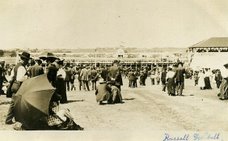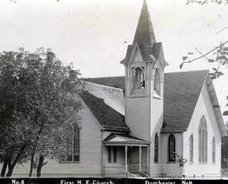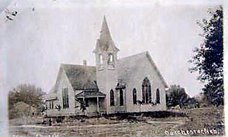Saline County's Pleasant Hill made the list.
This is a big deal considering Nebraska once had more than 1,100 towns -- many more than today's roughly 530 cities and villages. So the Cornhusker State has its share of ghost towns.
Sometimes referred to as Dorchester's sister community, Pleasant Hill replaced Swan City as the county seat following an 1871 countywide vote. (Dorchester had also been in the running to become the county seat.)
"Already the county's biggest and most prosperous town after its platting in 1867, with a state-of-the-art mill and at least one store, its offer of land and cash for a courthouse no doubt encouraged voters," the Journal Star reported.
The newspaper continued with its report:
"Within a couple years, though, Crete and Wilber had grown and sought to claim the courthouse as their own. State law required them to wait five years before bring the matter to a vote. Like its successor, Pleasant Hill finished last in a tight election won by Wilber, where the courthouse remains to this day.
"Getting the county records from Pleasant Hill, however, wasn't a given. It took 160 wagon teams and 300 people projecting force from Wilber before the papers were handed over.
"Like many other towns, its demise was sealed when the railroad by passed the former county seat. That first courthouse, used first as a poor house and then as a community hall, burned down prior to World War I. The final straw, though, was the fire that destroyed the mill in 1930."
Read the Times' 2008 article on Pleasant Hill's history here.
Sometimes referred to as Dorchester's sister community, Pleasant Hill replaced Swan City as the county seat following an 1871 countywide vote. (Dorchester had also been in the running to become the county seat.)
"Already the county's biggest and most prosperous town after its platting in 1867, with a state-of-the-art mill and at least one store, its offer of land and cash for a courthouse no doubt encouraged voters," the Journal Star reported.
The newspaper continued with its report:
"Within a couple years, though, Crete and Wilber had grown and sought to claim the courthouse as their own. State law required them to wait five years before bring the matter to a vote. Like its successor, Pleasant Hill finished last in a tight election won by Wilber, where the courthouse remains to this day.
"Getting the county records from Pleasant Hill, however, wasn't a given. It took 160 wagon teams and 300 people projecting force from Wilber before the papers were handed over.
"Like many other towns, its demise was sealed when the railroad by passed the former county seat. That first courthouse, used first as a poor house and then as a community hall, burned down prior to World War I. The final straw, though, was the fire that destroyed the mill in 1930."
Read the Times' 2008 article on Pleasant Hill's history here.



















































Wilber. Built on the back of thieves.
ReplyDeleteOld grudges die hard.
DeleteIt is my understanding from one of Saline Counties historical books, that Dorchester actually won the election to be the county seat. Every existing community with a rail line was on that ballot. The citizens of Wilber took the archives by force (sheer numbers) and wagoned all the county records to Wilber. Crete continued to fight the move, but the citizens felt it was time to let well enough alone.
ReplyDeleteVery interesting!
ReplyDelete